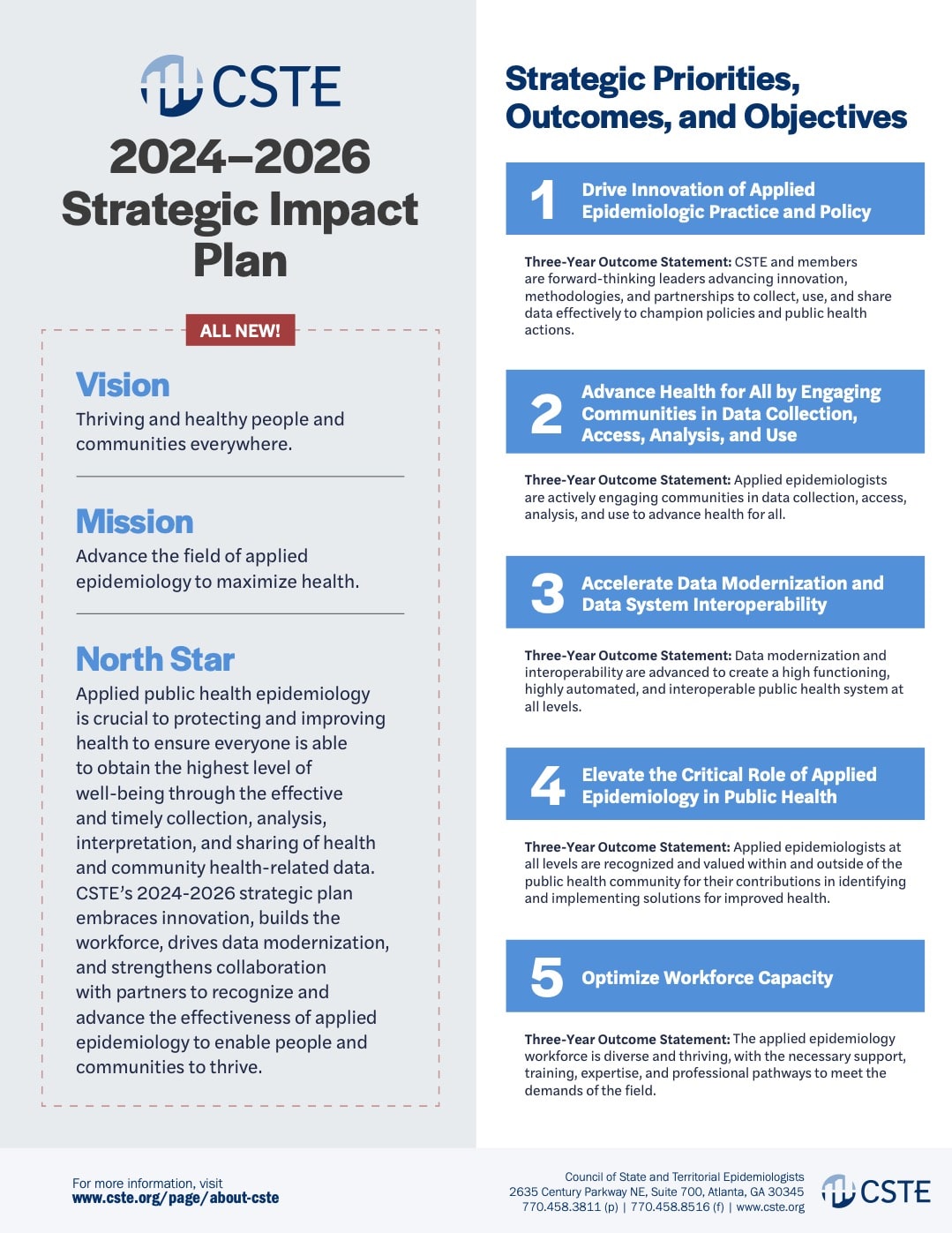This resource outlines CSTE’s 2024-2026 Strategic Impact Plan, focusing on advancing applied epidemiology to promote public health through innovation, workforce development, data modernization, and community engagement, aiming to ensure thriving and healthy communities everywhere.

Related Topics
Building Trust
Building trust in COVID-19 vaccination and other public health interventions is fundamental to the work of public health and efforts to end the COVID-19 pandemic. We can build trust by combating misinformation, supporting trusted messengers and networks, improving our trustworthiness, and deepening relationships that engender trust over time. Building trust between public health and communities facilitates acceptance of public health interventions and can cultivate an equitable COVID-19 response now and conditions for well-being in the future.
Community Assessment and Engagement
Community assessment is a systematic process by which a community’s health status and related factors are examined; it is used to identify problems and assets in a community. Through community engagement, stakeholders work together to address health-related issues and promote well-being with the goal of improving health outcomes. These two processes work hand-in-hand to facilitate health improvements. COVID-19 has changed the assessment landscape in many ways–introducing new challenges for engagement, upending pre-pandemic implementation plans, and necessitating new and updated data to understand emerging health impacts and needs.
Disease Tracking and Surveillance
Disease surveillance helps us detect disease cases, understand burden of disease and risk factors, provide the basis for timely and informed decision-making, guide control measures, and monitor impacts. Since the onset of COVID-19, surveillance efforts have worked to provide real-time tracking and forecast data, despite challenges with diagnostic capacity, case reporting, insufficient contact tracing, and fragmented data systems. COVID-19 has highlighted the need to invest in modern data systems, expand and skill up the workforce, and ensure data reporting and interpretation retain high ethical and epidemiological standards.
Public Health Workforce Development and Diversity
The public health workforce plays an essential role in securing the vital conditions for health and well-being for all to thrive. A skilled, resourced, and robust public health workforce is needed to meet the demands of public health today and prepare for the needs of tomorrow. A diverse public health workforce is better equipped to address the needs of the most impacted and marginalized, and implement population health strategies. COVID-19 has shed light on challenges facing the public health workforce, while also exacerbating them. The COVID-19 pandemic has emphasized the need to skill up the workforce; support workers’ needs; center equity in workforce development efforts; and plan for the future.
